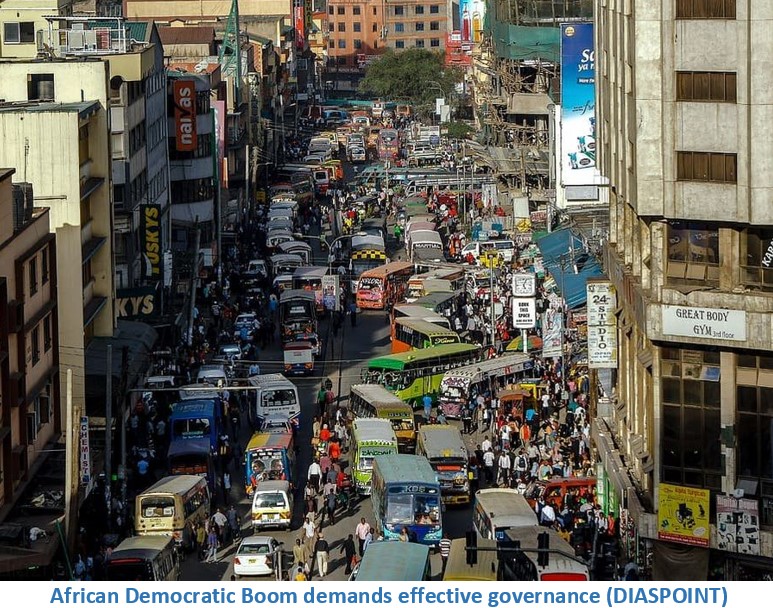Africa’s Demographic Boom Is The Continent’s Greatest Resource
Post By Diaspoint | June 20, 2023

The projections from the United Nations Population Division for African demographics reveal some striking figures. And it’s up to leaders to turn it into economic growth and social vitality
The African population is set to double in the next 30 years, and by 2050, about 100 cities on the continent will have more than a million inhabitants. In 2100, the number of inhabitants on the African continent is estimated to reach 4.2 billion people.
Consider other measures of the growth: A child born today in Burundi (which currently has about 12 million inhabitants) will witness their grandchild being born in a country that will have quadrupled its population. Nigeria, with a current population of 206 million people, is projected to reach 400 million inhabitants by 2050, while Niger will nearly triple its population in just 30 years, going from 24 million inhabitants in 2020 to 66 million by 2050. The Democratic Republic of Congo, with a current population of 89 million, is expected to have around 362 million people by 2100.
These demographic projections have revived the theory of “Malthusianism,” through various apocalyptic speeches and theories.
The futility of neo-Malthusian fear
According to some experts, African population growth will be an obstacle to the continent’s economic development. Former Nigerian President Goodluck Jonathan said during the Dialogue of Civilizations Research Institute think tank forum in Oct. 2017 that “If we do not reduce the size of our families, our country will continue to suffer from poverty because the available resources will no longer be able to meet our needs.” This reasoning is a fallacy — the fallacy of the fixed pie.
The wealth of the continent is not fixed. It is a false idea to assume that as the population grows, the share of each individual diminishes. In fact, the “pie” itself will expand based on the number of people. We have a reference point in history: it would be highly inaccurate to consider that the population growth in Europe during the 20th century, often referred to as the baby boom, had a depressing influence on Europe’s economic development.
It is an immense reservoir of long-term capital for financing the real economy
And the probability of having great thinkers and inventors actually increases as the population grows. Hence, the following thesis arises: with widespread education of children, African demographics will be an asset for the continent’s development. Innovation is directly linked to the size of the population. This reminds us of the insightful statement from philosopher Jean Bodin: “There is no wealth except for men.”
Ultimately, economic growth rests on two pillars: demographics and productivity. Here, the structure of the African population is an undeniable asset: it consists predominantly of young people, with a median age of about 19 years.
Read More from original source
